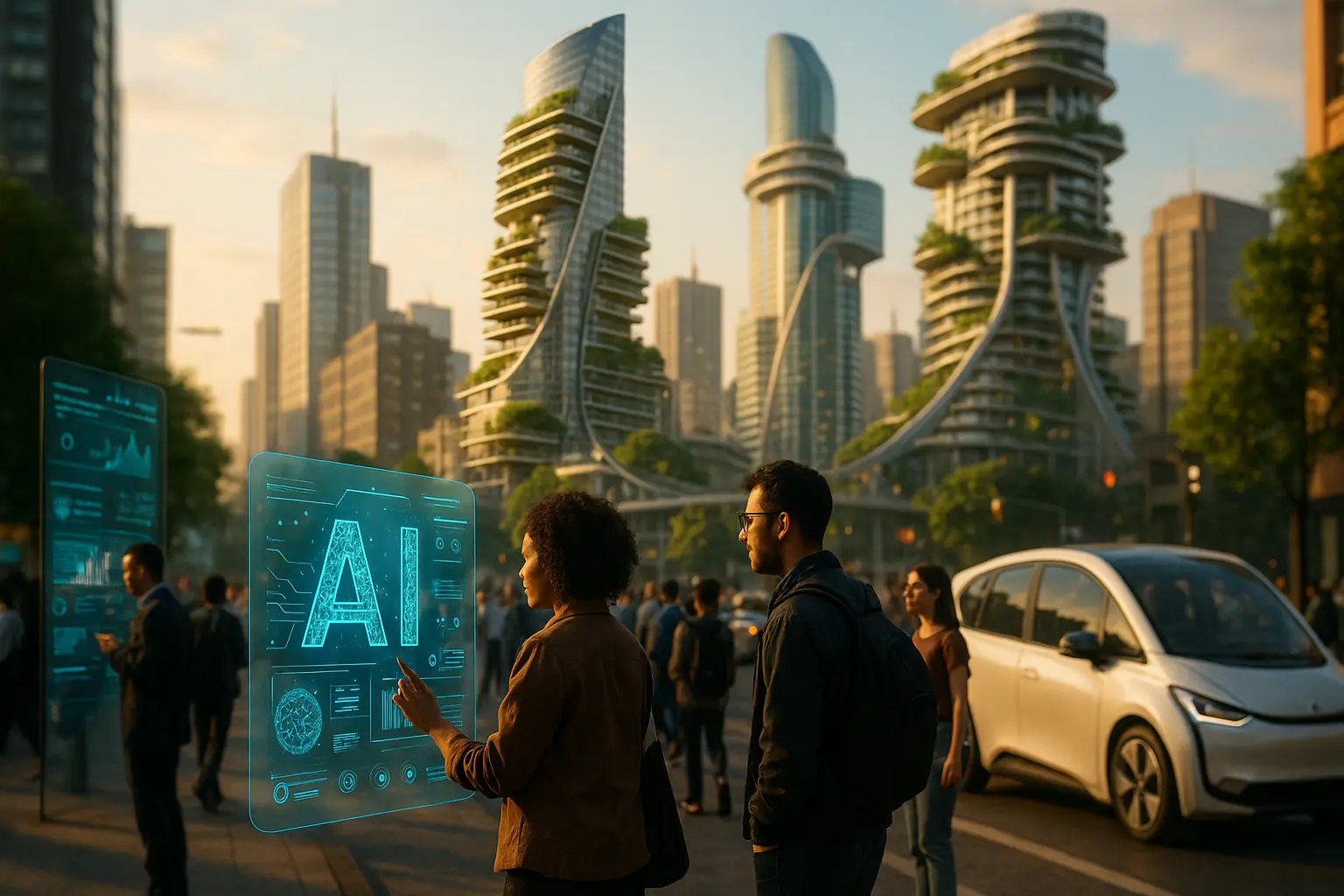In our rapidly evolving society, the landscapes of cities are as dynamic as the people inhabiting them. Urban development requires a keen understanding of the multifaceted elements that make up a city. As our world becomes increasingly data-driven, the advent of artificial intelligence (AI) is set to redefine the very essence of urban planning. In this modern era, not only are we anticipating the rise of new cities, but we are also aiming for sustainable growth. This journey is powered by smart systems, where energy, traffic management, and public infrastructure work in synergy to create a futuristic urban environment. Let us delve into the captivating realm where AI introduces a paradigm shift that promises to redefine our cities’ future.
The Role of AI in Energy Management
When we think about cities, the pulse of their growth is rooted in energy consumption. AI plays an instrumental role in optimizing energy management systems. By harnessing vast amounts of data, cities can now implement smart grids that fine-tune energy distribution in real-time.
The beauty of AI lies in its ability to predict energy demand patterns, ensuring resources are utilized efficiently. Imagine a world where, during peak hours, energy is automatically diverted to high-demand areas, reducing waste and promoting sustainability. By leveraging AI, we can minimize reliance on non-renewable resources, thus fostering a cleaner environment.
Furthermore, AI-driven systems are pivotal in renewable energy integration. Solar panels, wind turbines, and other renewable installations can now operate at their peak potential, aided by predictive algorithms that account for weather patterns and energy needs. This not only enhances sustainability but also reduces operational costs, making the transition to clean energy more attractive for urban planners.
Ultimately, AI is not just a tool but a partner in our quest for efficiency. By optimizing energy flow and promoting sustainable development, AI helps illuminate a future where cities thrive harmoniously with nature.
Transforming Traffic Management with AI
Traffic congestion has long plagued urban dwellers, transforming commutes into arduous journeys. However, with AI at the helm, traffic management is undergoing a revolutionary change. Data-driven analytics now enable cities to monitor traffic flow in real-time, predicting and alleviating bottlenecks before they form.
AI’s prowess lies in its ability to analyze complex traffic patterns, suggesting alternate routes and optimizing signal timings. Imagine a scenario where traffic lights adapt autonomously, reducing wait times and enhancing the public commuting experience. This not only saves time but also significantly cuts down on fuel consumption, reducing the overall carbon footprint.
Moreover, AI-powered systems are instrumental in creating safer roads. By integrating AI with smart city infrastructure, cities can monitor road conditions, predict accidents, and implement preventive measures. The seamless integration of AI with autonomous vehicles promises to further revolutionize urban mobility.
As we look toward the future, AI will continue to transform our cities into well-oiled machines, where efficiency and safety become the new norms. By employing AI in traffic management, urban planners can craft cities that are not only navigable but also environmentally friendly and conducive to the well-being of their inhabitants.
The Impact of AI on Waste Management
Waste management is often an overlooked yet crucial component of urban planning. As cities burgeon, the need for efficient waste management systems becomes paramount. Here again, AI steps in as a formidable ally, helping us manage waste more effectively.
AI-driven systems can now predict waste generation patterns, allowing cities to optimize collection routes and reduce operational costs. By analyzing data collected from various sources, these systems can accurately determine the most efficient times for waste collection, ensuring resources are not squandered.
Moreover, AI enhances recycling processes by accurately sorting materials, thus reducing contamination and improving recycling efficiency. This not only saves time but also significantly lowers the costs associated with waste processing.
By harnessing AI, we can transform waste management into a streamlined and efficient process, ultimately minimizing environmental impact. Sustainable cities of the future will rely heavily on AI to ensure that waste is managed responsibly, reducing landfill dependency and promoting a circular economy. Such advancements signify a new dawn in urban planning, where cities are designed with foresight and precision.
As we gaze into the future, it’s clear that AI stands at the forefront of urban evolution, transforming our cities into dynamic, smart ecosystems. The integration of AI into urban planning heralds a new era of efficiency, sustainability, and innovation. By capitalizing on AI’s capabilities, we can envision cities where energy is managed wisely, traffic flows seamlessly, and waste is handled sustainably.
The marriage of technology and urban planning presents an unprecedented opportunity. This journey, driven by data and powered by AI, is paving the path toward cities that reflect the aspirations of modern society. As custodians of urban development, we must embrace these technological advances, ensuring that our cities not only thrive but also nurture the generations to come.
The future beckons, and with AI as our guide, we are poised to build cities that epitomize progress and harmony. Let us forge ahead, crafting the blueprint for a future where urban living is synonymous with innovation and sustainability.
FAQ
What role does artificial intelligence play in modern urban planning?
Artificial intelligence (AI) is pivotal in analyzing vast amounts of data to optimize city layouts, improve infrastructure efficiency, and enhance transportation systems. AI algorithms can predict urban growth trends and provide insights for sustainable development.
How does AI improve public transportation systems in cities?
AI technology helps in designing efficient public transportation routes by analyzing traffic patterns, peak travel times, and commuter behaviors. This leads to reduced congestion, shorter travel times, and enhanced service reliability.
In what ways can AI contribute to sustainable urban development?
AI facilitates sustainable urban development by optimizing resource usage, reducing energy consumption, and promoting green infrastructure solutions. It can model the environmental impact of different urban designs, aiding in eco-friendly decision-making.
How is AI used in managing city utilities and services?
AI systems monitor and manage utilities like water, electricity, and waste management by predicting usage patterns and identifying potential issues before they arise. This ensures efficient resource distribution and minimizes service disruptions.
Can AI help in designing safer urban environments?
Yes, AI can analyze crime data, traffic incidents, and environmental hazards to identify risk zones and propose safety enhancements. By integrating AI insights, urban planners can develop strategies to create safer living spaces for residents.


